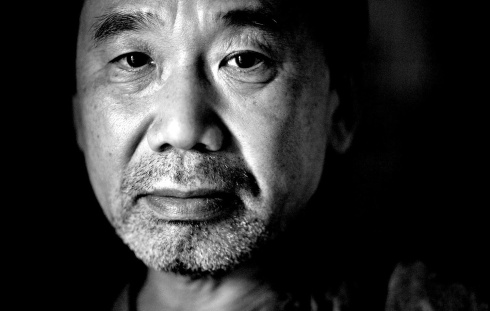You are currently browsing the tag archive for the ‘the wind-up bird chronicle’ tag.

Toru Okada is boiling pasta when the phone rings. The woman at the other end knows him, but he does not know her. The conversation is vague. Toru is anxious the pasta might be overcooked. His wife, Kumiko, calls later to ask him about their cat that has gone missing, named Noburu Wataya after her brother that both Toru and her despise. This seemingly mundane beginning transgresses into a fantastical tale involving psychics, war stories, a mysterious brother-in-law (the fore-mentioned Noburu Wataya), an unraveling marriage, and a labyrinth of twists, turns and parallel narratives. Murakami is a master storyteller, and there is no telling where the story will lead you which is part of the charm of reading this book.
The narrator, Toru Okada, has lost his job as a junior clerk in a law office and is presently unemployed. In describing his daily routine, Murakami gives us a sense of the mundane that accentuates the fantasy that follows once things begin to, well, unravel:
One morning after Kumiko rushed through breakfast and left for work, I threw the laundry into the washing machine, made the bed, washed the dishes, and vacuumed. Then, with the cat beside me, I sat on the veranda, checking the want ads and the sales. At noon I had lunch and went to the supermarket. Then I bought food for dinner and, from a sale table, bought detergent, tissues, and toilet paper. At home again, I made preparations for dinner and lay down on the sofa with a book, waiting for Kumiko to come home.
Toru is best described by another character that he deals with later on in the book
This may sound odd but you’re basically a really ordinary guy. Or to put it even more bluntly, there is absolutely nothing special about you.
Toru is an ordinary guy that walks into an extraordinary situation that changes who he is. You root for him, as the underdog, the victim. Yet this novel is not just about Toru. It is also about the people he encounters, some of who help Toru find answers in the maelstrom in which he is caught. The teenage neighbor, the psychic sisters, the retired lieutenant all have their own interesting stories. One is grateful for Toru’s curiosity in wanting to know more about the people he meets.
My first book by Murakami was Wind/Pinball that I finished just before I began reading the one above. One of his early works, Wind/Pinball comprises of 2 short novellas – Hear the Wind Sing and Pinball both published in 1973. There is no clear storyline in these books – merely a narrative that floats on the surface, with copious amounts of beer consumed, and cigarettes smoked. After I finished it, I felt somewhat shortchanged, though not in the usual sense of the word for I had borrowed the book from the library.
Murakami is one of those authors that I had been meaning to read for sometime now. I had carried the burden of not having read his book far too long. When I borrowed the books from the local public library, the librarian seemed enthusiastic. ‘People think he has won the Nobel Prize, but he hasn’t, and I think he should’, he said. He told me of a documentary that tries to seek out the reclusive writer. He told me that one of his books, Norwegian Wood, had been made into a film. It was with much anticipation that I had read Wind/Pinball.
One interesting bit in Wind/Pinball was an introduction by the author about how he came to writing. A translator of books, Murakami owned a jazz bar/cafe. Then one day in April 1978, while he is watching a baseball game at Jingu Stadium between the Yakult Swallows and the Hiroshima Carp, he has an epiphany. Murakami was a Swallows fan. The Swallows’ first batter was Dave Hilton (‘a skinny newcomer from the States’).
In the bottom of the first inning, Hilton slammed Sotokoba’s first pitch into the left field for a clean double. The satisfying crack when then bat met the ball resounded throughout Jingu stadium. Scattered applause rose around me. In that instant, for no reason and based on no grounds whatsoever, it suddenly struck me: I think I can write a novel.
Wind/Pinball left me with the collective hangover of its characters boozing. The sentences were short to a fault. There was very little character development. True, the book was an early work. The Wind-Up Bird Chronicle was published more than 20 years later in 1994-95. It deserved a chance, and I am glad I decided to read it. One finds a far more mature, versatile and imaginative writer here. The storyline is way more engrossing, and the characters much more comprehensible. The sentences are the right level of descriptive. It was after a long time that I was reading a book that I found hard to put down.
